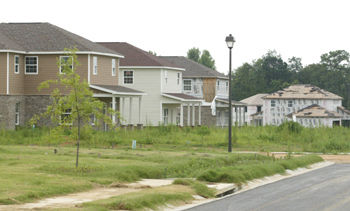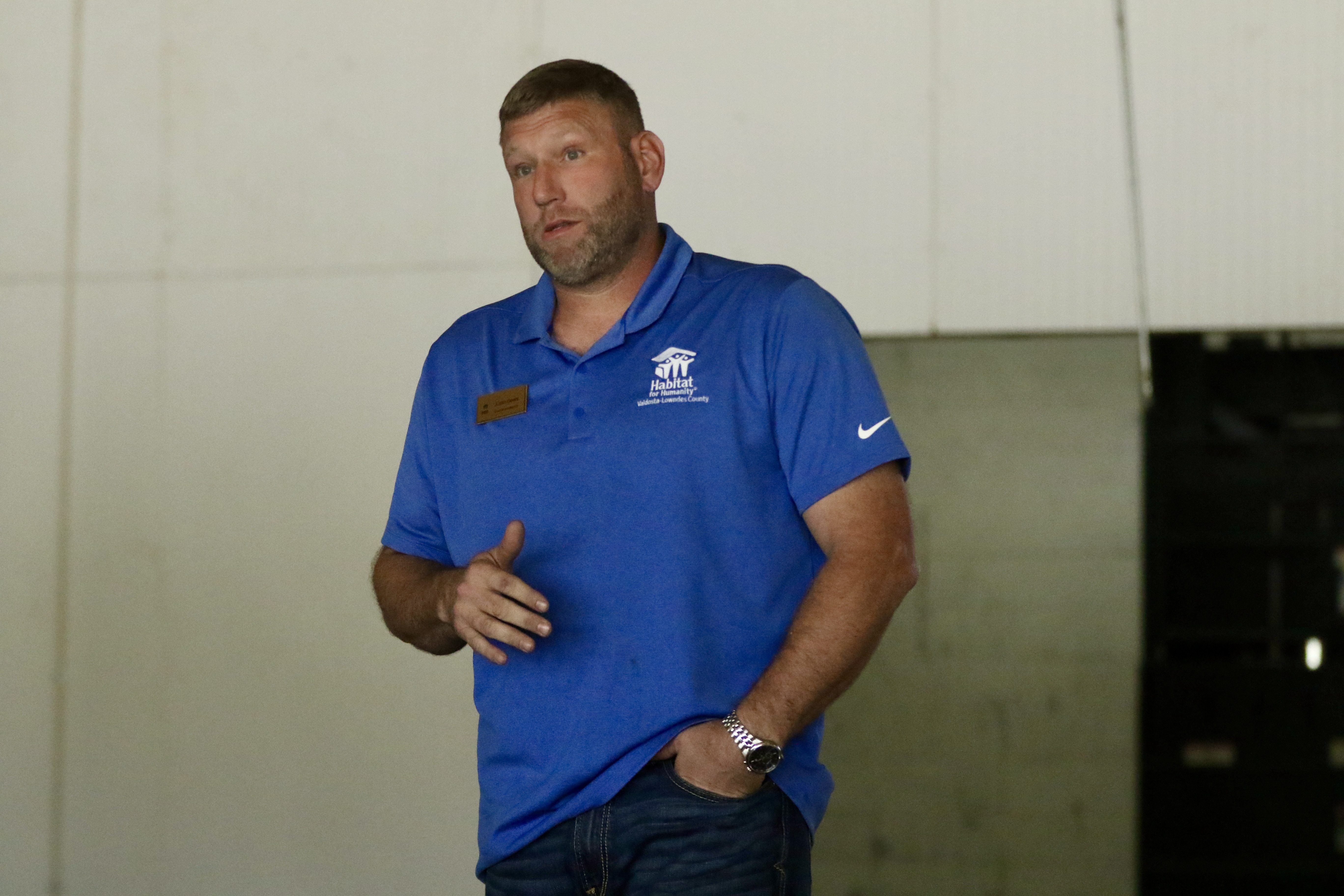Housing privatization woes
Published 11:13 pm Thursday, August 16, 2007

- The Magnolia Grove Moody Family Housing project has been halted, stopping construction on 383 homes in the project, which started in October 2005. The work stopped on homes in various stages of construction, some finished, some not and exposed to the elements.
VALDOSTA — As Moody Family Housing continues facing construction and financial woes, other Air Force bases are also facing hardships where American Eagle Communities is involved.
American Eagle Communities LLC is a partnership formed by the Shaw Group of Baton Rouge, La. and the Carabetta organization of Meriden, Conn. which was awarded $3.3 billion in construction and management contracts for military bases in five states. Work has now halted on all of the projects, with the privatized housing area at Moody locked down as of March 2007 with subcontractors left unpaid for millions of dollars of work completed on the $50 million contract. Bases nationwide report similar issues with the projects.
On the Moody side, shortly after the start of legal proceedings last month, The Times learned that as of April 5, 2007 former project manager Keith Goldberg was officially no longer an employee of SRC Construction, Inc. or the Carabetta Organization. “I was the original permit holder for the project. However, my license was withdrawn from the project in March,” said Goldberg.
Goldberg’s separation from SRC Construction and the Carabetta Organization comes as no surprise among the
multitude of companies, subcontractors — even American Eagle Communities Managing Director Kathryn Thompson — separating from the projects.
Currently, Moody has a total of two homes completed of 400 planned. Among other air bases experiencing difficulties, at Hanscom Air Force Base, only 17 new houses were completed out of 784 proposed, and 163 completed at Patrick of 552 proposed units. At Little Rock, 25 homes have been built out of 1,200 promised, according to the Record -Journal in Meriden, Conn.
The suit filed by Regions Bank against Moody Family Housing LLC, a Carabetta partnership, the Bank is attempting to get the court to appoint a receiver to take possession and authority over Moody Family Housing LLC’s assets.
Accordingly, Carabetta’s attorney Scott Consoli believes a takeover would leave millions in unpaid debts to subcontractors and vendors in jeopardy if it forecloses on the project. Accordingly, Carabetta is trying to convince the bondholder to release enough cash to pay the subcontractors.
“Moody Air Force Base in Valdosta, Ga. has had the most problems, although work also stopped at bases in Little Rock, Ark., Hanscom, Mass. and Patrick Air Force Base, Fl. Shaw is a partner in every project except Moody,” reported the Record- Journal on August 3, 2007.
At Patrick Air Force Base, Carabetta contractors were allowed to complete 163 units that comprised phase one. However, the trustees there have cut off funding to maintain the project’s value, according to the Record Journal.
The American Eagle partnership was formed in 2003 to build about 10,000 units of private military housing on bases in five states. According to the Record Journal, the projects are not typical contracts, but 50-year real estate transactions between the developers and the Air Force. Developers agree to offer privately owned homes for rent to military families in exchange for initial government funding and long-term rent payments.
Accordingly, in favor of reaching an arrangement will finish construction of the housing, the military has resisted taking punitive action against American Eagle over the delays. “The projects are experiencing distress due to substantial cost overruns and lower than projected occupancy rates,” said Air Force spokesman Michael Hawkins. “The cost overruns are primarily due to inaccurate cost estimates by the project owners. The Air Force continues to actively work with the bondholder, the project owners and other stakeholders to resolve the issues as expeditiously as possible.”
According to the August 20, 2007 issue of the Air Force Times, all of the housing projects are privatized, meaning the housing units are built and operated by private companies. Privatization allows the military to build more quickly while spending less money upfront, and the developer collects rent from the service members who occupy the units.
Despite problems with these projects, Hawkins defended privatization in the Air Force Times as a quick, cost effective way to provide housing. “It.. has meant that our people are in affordable, quality housing much quicker than if we were to pay for it with tax money and manage the construction ourselves,” said Hawkins.
“By every meaningful measure, the Air Force housing privatization program is a huge success,” added Hawkins.
Overall, the military housing deals with a value of $3.3 billion were seen as a way to get the Carabetta family back on track after a bankruptcy beginning in 1992, according to the Record-Journal. However, cost overruns, contractor liens, and trustee pullbacks have halted the projects.





